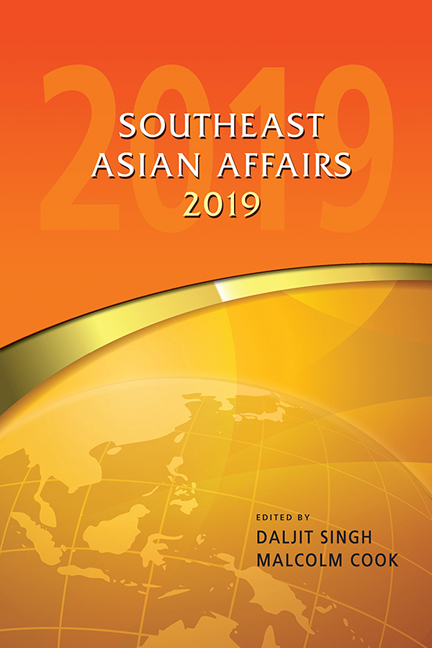Cambodia in 2018: A Year of Setbacks and Successes
from CAMBODIA
Published online by Cambridge University Press: 07 September 2019
Summary
Cambodia in 2018 was marked by a number of major setbacks in some areas and successes in others. On the political front, the senate and parliamentary elections resulted in the Cambodian People's Party's monopolization of power within the bicameral legislature. Prime Minister Hun Sen continued to tighten his grip on power by taking steps to control state institutions, most notably the armed forces, the judiciary, and the party system. Human rights in the country continued to face an uphill battle, although the CPP government took a few small positive steps towards the end of the year by reversing its tight restrictions on the opposition and political rights. All these negative developments occurred despite positive signs of socio-economic development and international pressure from some major countries on which Cambodia has long depended for economic growth. Developed countries like the United States and those in Europe threatened to impose sanctions on Cambodia because of the election results, but the Hun Sen government did little to address their concerns about the political and human rights situation.
The State and Political Society
The multiparty system that was introduced in Cambodia in 1993 through the 1991 Paris Peace Agreements and the intervention of the United Nations Transitional Authority in Cambodia is now dictated by the CPP, which allows weak and fragile opposition parties to exist without any prospects of them gaining enough seats to form a new government.
The year 2018 was noteworthy in the sense that two major elections for the bicameral legislature — the Senate and the National Assembly — led to the CPP's total dominance, and further marked a move away from a hegemonic-party system to the beginning of a one-party state. The election for the Senate was held on 25 February, after having been postponed from 14 January 2018, and the results left the CPP with all 58 elected seats, taking 12 seats away from the opposition. The CPP also captured all 125 seats in the National Assembly, having collected 4,889,113 votes, leaving the other nineteen political parties without a single seat. Banned in November 2017 by the Supreme Court from competing in the two elections, the Cambodia National Rescue Party (CNRP), which won 55 out of 123 seats in the 2013 elections, was not even among the nineteen parties that competed with the CPP.
- Type
- Chapter
- Information
- Southeast Asian Affairs 2019 , pp. 105 - 120Publisher: ISEAS–Yusof Ishak InstitutePrint publication year: 2019

